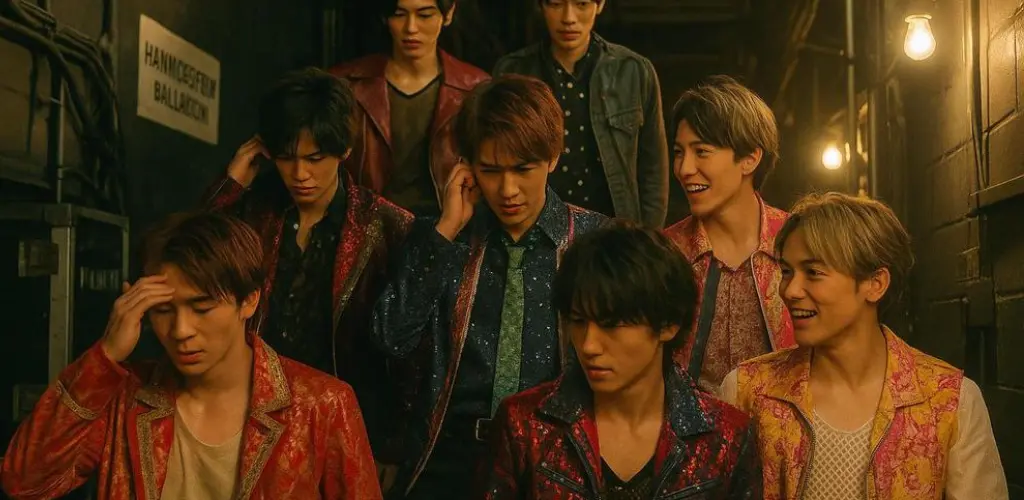The 2025 edition of the Soundside Music Festival, a major summer draw for New Yorkers and one of Connecticut’s fastest-growing cultural events, has been officially canceled. Announced on July 26, the abrupt decision was attributed to “circumstances beyond our control,” leaving fans, vendors, and local businesses with unanswered questions and raising broader concerns about the stability of mid-sized music festivals in the Northeast.
Cancellation Signals Broader Entertainment Uncertainty
Despite a high-profile lineup including The Killers, Hozier, Weezer, and Vampire Weekend, the event struggled to meet ticket sales expectations. According to Thomas Gaudett, a local government representative, sales were significantly lower than in previous years — a likely factor in the festival’s cancellation. The news arrives amid rising competition from other regional events and evolving consumer behavior around live entertainment.
“We’re seeing a phase of recalibration in entertainment preferences,” noted Gaudett. “People are more selective, especially with rising costs, and that’s having a ripple effect on festival attendance.”
A Short but Influential Run
The event began in 2022 as Sound On Sound before rebranding to Soundside. Hosted at Bridgeport’s Seaside Park, the festival quickly staked its claim as a premier destination for summer music lovers. Its unique model — two days of performances on a single stage with no overlapping sets — distinguished the festival from its more chaotic counterparts. Featuring upscale amenities such as gourmet food, private lounges, and premium viewing areas, Soundside cultivated a loyal following, especially from New York City residents seeking a refined yet accessible live music experience.
Unclear Causes Fuel Speculation
Organizers have withheld specifics, citing only “unforeseen circumstances” surrounding the event’s suspension. While low ticket sales have been acknowledged informally by local officials, the ambiguous language has frustrated many would-be attendees.
“I was looking forward to seeing Vampire Weekend under the summer sky,” said Bridget Collins, a Brooklyn-based fan who attended in previous years. “It’s not just disappointing — it’s confusing. There’s no clear reason, and that makes us hesitate for next year.”
The lack of transparency has fed speculation about possible behind-the-scenes constraints, ranging from logistical hurdles to financial shortfalls — though none have been publicly confirmed.
Economic Impact on Local Business and Tourism
The festival’s sudden cancellation is expected to carry economic consequences, especially in Bridgeport, where local hotels, restaurants, and seasonal vendors had prepared for an influx of summer visitors. The event had become a coveted weekend for regional tourism, injecting capital into the waterfront corridor and boosting visibility for the city’s growing arts scene.
“Soundside brought hundreds of guests each day,” said a local innkeeper who asked to remain anonymous. “When you subtract that kind of traffic, it’s not just the event that suffers — it’s the whole community.”
Rising Competition in a Crowded Market
The regional music festival calendar has grown increasingly crowded, with alternatives such as the Black Bear Music Fest in Harwinton and the Podunk Bluegrass Festival in Goshen offering longer runtimes and highly specific genre programming. These smaller but focused events may now absorb some of Soundside’s displaced audience — and possibly its vendors and sponsors, too.
With Black Bear Music Fest scheduled for August 22–24 and touting over 50 bands, and a number of niche events maintaining strong support, consumer attention may be diffusing across more targeted experiences. This diversification benefits audiences but potentially weakens broadly targeted festivals competing in the mid-tier market.
A Glimpse into Changing Consumer Priorities
Analysts point to a shift in how the public approaches live events. Economic pressure, increased travel costs, and a growing appetite for intimate or bespoke experiences may be altering what once seemed like an unfaltering demand for large-scale music festivals. Soundside’s model — polished, streamlined, and premium — may have lost ground to quirkier, more immersive offerings that emphasize novelty and value over name recognition alone.
“Festivals are no longer one-size-fits-all,” said an event consultant familiar with the New England circuit. “Audiences want more than big names — they want an experience they can’t get elsewhere.”
Fans Mourn the Loss of a Budding Tradition
Social media platforms were saturated with stunned responses following the announcement. Many expressed disappointment not only over the cancellation itself but also over the abrupt and vague nature of the disclosure. The festival had begun to entrench itself in annual calendars, particularly among city dwellers seeking a quick cultural escape to the Connecticut shoreline.
“It was becoming our summer tradition,” tweeted one attendee. “Sad to see it go, even temporarily.”
Looking Ahead
Organizers have not commented on plans for 2026, though the cancellation leaves a void in New York’s summer music circuit and raises questions about the sustainability of such events in today’s market. Whether Soundside returns or remains shelved will likely depend on resolving the issues behind this year’s closure — issues they have yet to publicly define.
In the meantime, ticket holders are being issued full refunds, and Bridgeport’s waterfront will remain quiet this September — a sharp departure from the festivity and fanfare that, for the last three summers, echoed along its shore.



